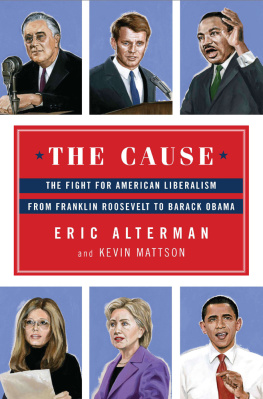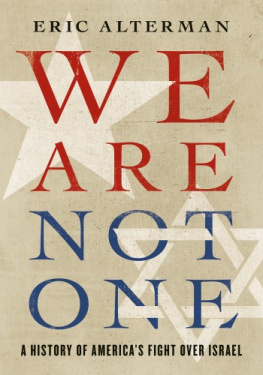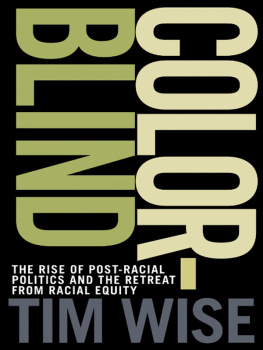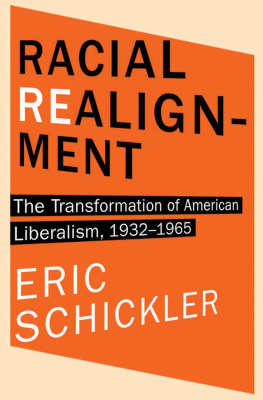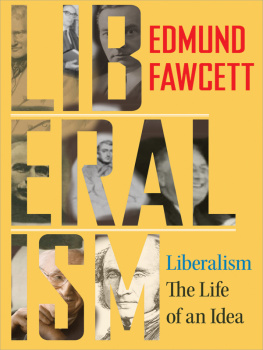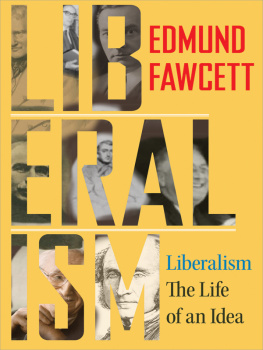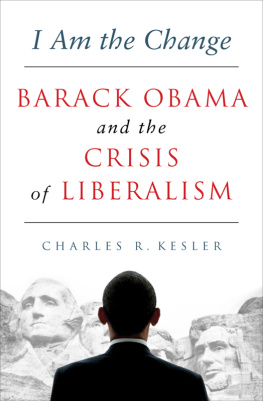About the Authors
E ric Alterman is Distinguished Professor of English and Journalism, Brook-lyn College, City University of New York, and Professor of Journalism, CUNY Graduate School of Journalism. He is also The Liberal Media columnist for The Nation, a columnist on Jewish issues for The Forward and on politics for The Daily Beast. He is a senior fellow of the Center for American Progress in Washington, D.C., and of the Nation Institute, and the World Policy Institute in New York City. In the past he has been a history consultant to HBO films, a columnist for Rolling Stone,Mother Jones,Worth,World Policy Journal, and the SundayExpress (London), as well as an occasional contributor to The New Yorker,The Atlantic Monthly, and Le Monde Diplomatique. Alterman is the author of eight previous books, including the national bestseller What Liberal Media? The Truth About Bias and the News. His first book, Sound & Fury: The Making of the Punditocracy (1992), won the George Orwell Award and his It Aint No Sin to Be Glad Youre Alive: The Promise of Bruce Springsteen (1999) won the Jack London Literary Prize. Alterman has been called the most honest and incisive media critic writing today in the National Catholic Reporter and author of the smartest and funniest political journal out there in the San Francisco Chronicle. In 2011, he was given the Mirror Award for media criticism. Alterman received his Ph.D. in American history from Stanford, his M.A. in international relations from Yale, and his B.A. in history and government from Cornell. He lives with his family in New York City.
Kevin Mattson is the Connor Study Professor of Contemporary History at Ohio University (Athens), where he also lives, and is the author of six previous books and editor of three. He received his Ph.D. from the University of Rochester and his B.A. from The New School.
Acknowledgments and Dedication
I began the research for this book in 2004 upon signing a contract with Viking to write two books on American liberalism, allegedly over a period of four years. The contract, which was negotiated by my friend, adviser, and agent for the past fourteen years, Tina Bennett, together with my friend, adviser, and editor for the past twenty years, Rick Kot, resulted in Why Were Liberals (Viking, 2008; Penguin 2009)a present-oriented work still happily available for purchase and perusaland now The Cause. At the time, I thought it was a pretty clever idea to create one body of research to be spread over two books, but instead I found myself burned out on the topic after spending four years on the first book. I needed a break, but I also had a contract to fulfill.
After fighting a losing war with the mountains of material I had amassed, I eventually admitted to myself that I needed help to sharpen both my focus and narrative strategies. Following a lengthy search, I found Kevin Mattson, an American historian and public intellectual whose earlier books I had admired and, though we had never met, whose views both on historical and contemporary matters appeared to closely mirror my own. Kevin accepted my offer and together we came up with an outline for this book and I then turned over all of my research to him and invited him to contribute his own. After sending me early rough drafts of all but the final sections of the book, Kevin was forced to drop out of the project owing to long-held travel plans and other writing commitments (and so should not be held responsible for the final results). The drafts, thankfully, gave me the raw material I needed to relocate my original inspiration and get back to work. I rewrote each chapter, adding additional research as necessary, and finallyfour years (and one short book, Kabuki Democracy) later than initially intendedI was able to submit my much too long manuscript. Just as he has done for me since my first book, 1992s Sound and Fury, Rick Kot then flew into action to perform the painful surgical operations necessary to give the book coherent shape and (one hopes) manageable size. Following considerable back-and-forth, to say nothing of the yeoman efforts in the areas of copyediting, fact-checking, design, and everything else that goes into the publication of a big book like this one, here we are.
Kevin would like to offer his thanks first to my coauthor; my family, Vicky and Jay; my colleagues at Ohio University; the support of Pat Connor Study; George Cotkin for cheering me up at times; and my closest friend Jeff (b.s.-free) Boxer. I would like to thank Kevin; Rick, who remains, as far as I am aware, the most conscientious line editor in all of New York publishing; and Tina, upon whose perspicacious advice I depend, together with her assistant, Svetlana Katz. At Viking I would also like to offer my deepest gratitude to Laura Tisdel, now of Little, Brown, whose friendship and guidance have been and remain invaluable to me in more ways than I can explain or even enumerate. Also to Ricks new assistant, Kyle Davis; my crack copy editor, Susan Johnson; and Louise Braverman and Rebecca Lang, in Vikings publicity department. Massive thanks also to the books prepublication readers, the estimable trio of Mike Kazin, Tom Edsall, and Kai Bird, and to its team of fact-checkers Allie Tempus, Erica Hellerstein, Silvia Liu, and especially Jed Bickman. My appreciation as always to my friends, editors, and indulgent colleagues at The Nation and The Nation Institute, the Center for American Progress, The Forward,The Daily Beast, the English and journalism departments of Brooklyn College, and the CUNY Graduate School of Journalism. Finally, I remain indebted to my girls, Diana Silver and Eve Rose Alterman, and to my parents, Carl and Ruth Alterman, for their continued indulgence in good and bad, sickness and health, and everything in between. Per usual, whatever mistakes remain in the text are entirely their fault.
One of the oddities of this political moment is that contemporary conservatives have somehow settled on teachers as alleged enemies of the public good. I think I understand why they are doing this, but even after writing this book, it remains a kind of mystery how the rest of us have allowed it to happen. Personally, I would never have become the writer I am were it not for the commitments made to me over the course of my life by dedicated teachers who believed in what they did and repeatedly demonstrated why teaching and scholarship were the basis of not only a profoundly honorable life, but too often a significantly underappreciated one at that. In this spirit, I would like to recognize a group of peoplemany no longer living and most no longer teachingwhose wisdom and dedication to their craft I continue to carry in my head and in my heart. In rough chronological order, they are: Ed Grossman, Lawrence Kaye, Judith Kessler, Neil Maloney, Werner Feig, Judy Oksner, Richard Liebowitz, Walter LaFeber, Richard Polenberg, Isaac Kramnick, Benedict Anderson, George Quester, John Najemy, Robert Dahl, Paul Kennedy, Donald Kagan, Max Ticktin, Arnold Eisen, George Fredrickson, David Kennedy, and Barton J. Bernstein. For the past five years, I have been fortunate to be able to continue my classroom learning every Saturday morning with the remarkably erudite Rabbi David Gelfand at Temple Israel, Park Avenue. Finally, Ellen Tremper, chair of the English department at Brooklyn College, deserves a special mention for all her hard work in making it possible for me to enjoy the honor of the title as well. It is to these teachers of mine, and to those whom they represent, that I should like to dedicate this book.
ERA
November 8, 2011
1
Henry, Harry, and Eleanor:

